
IMMUNOLOGY AND CELL BIOLOGY
Scope & Guideline
Fostering Knowledge in Immunology and Cellular Mechanisms
Introduction
Aims and Scopes
- Immunological Mechanisms and Responses:
The journal focuses on fundamental immunological processes, including the roles of various immune cells, cytokines, and signaling pathways in both adaptive and innate immunity. - Cancer Immunology and Therapy:
A significant portion of the research published addresses the interplay between the immune system and cancer, exploring novel immunotherapeutic strategies and the biological mechanisms underlying tumor immunity. - Clinical and Translational Immunology:
The journal aims to bridge the gap between basic research and clinical applications, emphasizing studies that advance our understanding of immune-mediated diseases and inform therapeutic interventions. - Immunological Education and Workforce Development:
There is a commitment to enhancing education in immunology, with papers focusing on teaching methodologies, mentorship, and the professional development of emerging scientists. - Microbiome and Immune Interactions:
Research on the complex relationships between the microbiome and the immune system is a growing area of interest, highlighting how microbial communities influence immune responses and disease outcomes. - Innovations in Immunological Research Techniques:
The journal encourages the use of novel methodologies, including single-cell technologies, advanced imaging, and omics approaches, to elucidate immune functions and dynamics.
Trending and Emerging
- Immunotherapy and Cancer Research:
There is an increasing trend towards research on immunotherapies, particularly CAR T-cell therapies and checkpoint inhibitors, as researchers explore innovative ways to harness the immune system against cancer. - Neuroimmunology:
Research at the intersection of neuroscience and immunology is gaining momentum, with studies investigating how immune responses affect neurological conditions and vice versa, highlighting the relevance of the immune system in brain health. - Microbiome-Immune System Interactions:
Emerging themes focus on the role of the microbiome in modulating immune responses, linking gut health to systemic immunity and disease outcomes. - Education and Inclusivity in Science:
There is a noticeable increase in publications addressing the importance of diversity, equity, and inclusion in immunology, as well as innovative educational strategies to engage a broader audience in scientific research. - Single-Cell Technologies and Systems Biology:
Research employing single-cell analysis techniques is on the rise, providing deeper insights into the heterogeneity of immune responses and cellular interactions at unprecedented resolution.
Declining or Waning
- Historical Perspectives on Immunology:
Papers focused on historical analyses and retrospectives in immunology have decreased, suggesting a shift towards more contemporary research and applications rather than historical context. - Veterinary Immunology:
Research related to veterinary immunology has become less frequent, possibly reflecting decreased funding or interest in comparative immunology as researchers concentrate on human health applications. - Basic Cellular Mechanisms without Translational Relevance:
There seems to be a waning interest in basic cellular mechanisms that do not directly translate into clinical relevance, as the journal increasingly prioritizes studies with clear implications for human health. - Allergy and Asthma Research:
While still relevant, the volume of research focusing exclusively on allergy and asthma has diminished, possibly due to the emergence of more pressing topics like cancer immunotherapy and infectious disease responses.
Similar Journals
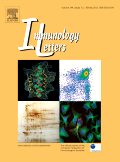
IMMUNOLOGY LETTERS
Transforming Discoveries into Clinical ApplicationsIMMUOLOGY LETTERS, published by Elsevier, is a distinguished journal in the field of immunology, focusing on the latest advancements and findings that significantly influence immunological research and clinical applications. Established in 1979, the journal has evolved to cater to a global readership, featuring high-quality peer-reviewed articles across a diverse spectrum of topics related to immunity and allergic responses. With an impressive Q2 category ranking in both Immunology and Allergy as of 2023, it holds a strong position within the scientific community, evidenced by its commendable Scopus rankings (Rank #71/233 in Medicine - Immunology and Allergy and Rank #85/236 in Immunology and Microbiology - Immunology). While primarily subscription-based, the journal aims to foster knowledge dissemination that encourages collaboration among researchers and practitioners alike, making significant contributions to the understanding of immune mechanisms. The journal is integral for educators, students, and professionals aiming to stay abreast of current trends and breakthroughs in the immune system's intricate functions.
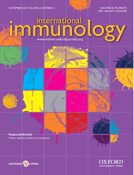
INTERNATIONAL IMMUNOLOGY
Pioneering Research at the Intersection of Immunology and Medicine.INTERNATIONAL IMMUNOLOGY, published by OXFORD UNIV PRESS, stands out as a premier journal in the field of immunology, providing a vital platform for disseminating groundbreaking research and innovative developments within the discipline. With an impressive Q1 ranking in Immunology and Allergy, as well as in Medicine (miscellaneous), it consistently showcases high-impact studies that contribute to the advancement of immunological knowledge. The journal spans over three decades, from its inception in 1989 to its ongoing contributions as of 2024, thus solidifying its reputation in the scientific community. Researchers, professionals, and students will find valuable articles that delve into the complexities of immune responses, therapeutic interventions, and emerging immunological paradigms, ensuring INTERNATIONAL IMMUNOLOGY remains at the forefront of knowledge in the life sciences.
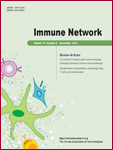
Immune Network
Pioneering Insights in Immune Response and DiseaseImmune Network is a prestigious journal dedicated to disseminating high-quality research in the field of immunology, infectious diseases, and allergy, under the esteemed KOREA ASSOCIATION OF IMMUNOLOGISTS. Founded in 2016, this journal has quickly ascended to a top-tier publication, achieving Q1 rankings in 2023 in multiple relevant categories, including Immunology, Allergy, and Infectious Diseases. With a strong emphasis on innovation and interdisciplinary research, Immune Network appeals to a diverse audience of researchers, professionals, and students keen on advancing the understanding of immune responses and disease mechanisms. However, it is crucial to note that the journal operates under a subscription model without open-access provisions. Its impact factor further solidifies its reputation, reflecting the significant influence of the articles published. Located in South Korea, the journal serves as a global platform for sharing revolutionary insights and fostering collaborations within the immunology community.
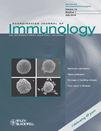
SCANDINAVIAN JOURNAL OF IMMUNOLOGY
Connecting Researchers to Transform Immunological UnderstandingScandinavian Journal of Immunology is a prestigious peer-reviewed journal published by Wiley, focused on the evolving field of immunology and its interdisciplinary ties with medicine. Since its inception in 1972, this journal has cultivated a rich repository of knowledge, showcasing innovative research and reviews that contribute to the understanding of immune system functions, disorders, and therapeutic interventions. With an impressive impact factor reflecting a Q2 ranking in Immunology and a top-tier Q1 status in miscellaneous Medicine categories for 2023, it is recognized for its high-quality scholarly output, positioning it among the leading journals in the field. Additionally, its Scopus ranking of #84 out of 236 in Immunology underscores its significance and relevance to both emerging and established researchers. Although it does not currently offer open access options, the journal’s expansive reach and rigorous publication standards make it an essential platform for disseminating impactful research to the global scientific community. The journal invites submissions that explore the complexities of the immune system, aiming to bridge clinical and basic science for a comprehensive understanding of immunological phenomena.
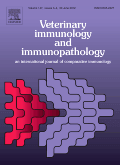
VETERINARY IMMUNOLOGY AND IMMUNOPATHOLOGY
Leading the way in veterinary immunology and therapeutic advancements.Veterinary Immunology and Immunopathology is a premier journal published by Elsevier, dedicated to advancing the field of veterinary science through rigorous investigations into the immunological mechanisms that underpin disease resistance, pathogenesis, and therapeutic interventions in animals. With an established history since 1979, this journal has consistently provided a platform for high-quality research, bridging the gap between immunology and veterinary medicine. The current impact factor reflects its significance within the field, particularly noted for its Q3 ranking in Immunology and Q2 in miscellaneous Veterinary categories as of 2023. The journal caters to a diverse audience, from seasoned researchers to students, by publishing original research, reviews, and case studies that explore pivotal topics such as vaccine development, immune response in various species, and the role of genetics in immunological disorders. Notably, it is indexed in Scopus, where it ranks in the top percentile of veterinary science disciplines, enhancing its visibility and impact within the scientific community. For those seeking to stay at the forefront of veterinary immunology, this journal is an invaluable resource.
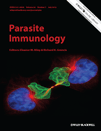
PARASITE IMMUNOLOGY
Exploring the Complexities of Immunological Defense.PARASITE IMMUNOLOGY, published by Wiley, is a leading journal in the field of immunology and parasitology, with an ISSN of 0141-9838 and E-ISSN of 1365-3024. Since its inception in 1979, it has played a pivotal role in advancing our understanding of host-parasite interactions, immunological responses to parasitic infections, and the mechanisms of immunological resistance. The journal is adeptly positioned within the academic community, currently holding a prestigious Q2 ranking in Parasitology and a Q3 ranking in Immunology for 2023, indicating its significant influence and relevance. Its comprehensive scope attracts a diverse readership, contributing to the discourse surrounding novel therapeutic approaches and emerging challenges in parasitic diseases. With a consistent convergence of research until 2024, PARASITE IMMUNOLOGY is an essential resource for researchers, professionals, and students seeking to deepen their knowledge and foster collaboration in these dynamic fields. Although it is not an open-access journal, the insights shared within its pages are invaluable for shaping future research trajectories.

HUMAN IMMUNOLOGY
Connecting Researchers in the Realm of ImmunologyHUMAN IMMUNOLOGY, published by Elsevier Science Inc, serves as a critical platform for disseminating research in the fields of immunology and allergy, as well as various aspects of miscellaneous medicine since its inception in 1980. With an ISSN of 0198-8859 and E-ISSN 1879-1166, this journal is pivotal for researchers and practitioners looking to advance their understanding of human immune responses and related conditions. The journal currently holds a respectable position within its field, as highlighted by its 2023 Scopus ranks—#114/233 in Immunology and Allergy and #132/236 in Immunology and Microbiology. Moreover, it maintains a Q2 quartile ranking in both Immunology and Allergy and miscellaneous Medicine, underscoring its influence and reach within the scientific community. Although it does not currently offer Open Access options, HUMAN IMMUNOLOGY remains dedicated to providing valuable insights and fostering academic discourse within its discipline, characterized by a rigorous peer-review process and a focus on innovative research trajectories.

Seminars in Immunopathology
Illuminating the Pathways of Immune ResponsesSeminars in Immunopathology is a premier academic journal published by SPRINGER HEIDELBERG, focusing on the intricate relationships between immune responses and pathologies. With an ISSN of 1863-2297 and an E-ISSN of 1863-2300, this journal delivers cutting-edge research and insights to its readers, contributing significantly to the fields of immunology and allergy, as reflected in its Q1 quartile ranking in both categories for 2023. Positioned in a highly competitive niche, it ranks #18 out of 233 in Immunology and Allergy and #22 out of 236 in Immunology and Microbiology, highlighting its impact within the scientific community. Seminars in Immunopathology publishes comprehensive reviews and research articles, aiming to advance understanding of immune mechanisms in disease and promote interdisciplinary collaboration. Accessible from Germany, this journal is a vital resource for researchers, clinicians, and students seeking to stay at the forefront of immunological advancements and therapeutic innovations.

Cellular & Molecular Immunology
Charting New Territories in Immunological ScienceCellular & Molecular Immunology is a prestigious peer-reviewed journal published by the CHIN SOCIETY IMMUNOLOGY. As a leading journal in the fields of immunology and infectious diseases, it proudly holds a Q1 designation across multiple categories, including Immunology, Allergy, and Medicine (Miscellaneous), reflecting its commitment to excellence and impactful research. With an ISSN of 1672-7681 and an E-ISSN of 2042-0226, the journal has been essential reading since its inception in 2004, continuously gathering insights from cutting-edge studies. It ranks impressively within Scopus, with positions in the 7th, 8th, and 9th percentile in relevant categories, establishing it as a cornerstone for researchers, clinicians, and students alike. The journal offers an extensive range of original research articles, reviews, and clinical studies, ensuring that readers stay at the forefront of immunological discovery. Whether you are interested in basic immunology, infectious diseases, or evolving therapies, Cellular & Molecular Immunology serves as an invaluable resource for advancing your knowledge and engagement in this dynamic field.
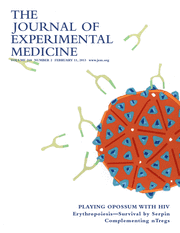
JOURNAL OF EXPERIMENTAL MEDICINE
Transforming Insights into Therapeutic StrategiesJOURNAL OF EXPERIMENTAL MEDICINE, published by Rockefeller University Press, is a renowned peer-reviewed journal dedicated to advancing the field of experimental medicine since its inception in 1896. With an impressive impact factor and categorized in the Q1 quartile for Immunology, Immunology and Allergy, and Miscellaneous Medicine, this journal stands at the forefront of medical research and innovation. It provides a prestigious platform for scholars and practitioners to disseminate groundbreaking findings that drive the understanding of disease mechanisms and therapeutic strategies. While the journal is not open access, it maintains high visibility and engagement within the scientific community, fostering collaboration among researchers, professionals, and students alike. The journal's consistent ranking in the top percentiles of Scopus illustrates its significant impact and commitment to excellence in medical research.